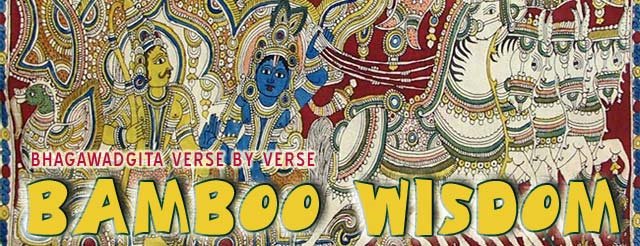Bhagavad Gita
– II 72
This
is the ultimate state
Esha
Brahmi Sthithih Partha Nainam Prapya Vimuhyati|
Sthithwasyam
Antakalepi Brahma Nirvanam Mrichchati||
Having
explained thestate of mind of a Sthitha Prajna, Sri Krishna concludes that this
is the state of the Brahman. He tells Partha, “If a person reaches this state
of mind, he is no more deluded. Even at the end of one’s life, if a person is
able to be in this state of mind, he attains to that motionless state called
Brahman, which is real freedom. When the mind is in constant movement with
desires, thoughts, ideas and worries, it is in bondage. When it is still and
motionless, it is completely in the state of Brahman and that is true nirvana or emancipation. With this
verse concludes the second chapter of the Bhagavad Gita, a text on Yoga, an
Upanishad and a dialogue between sri Krishna and Arjuna called Sankhya Yoga or
the Yoga of Knowledge. - SS

